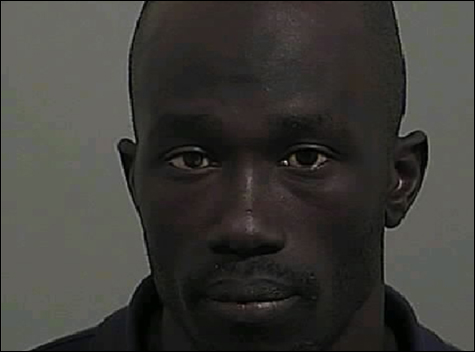
Edward Okeny
|
|
Media silence
During the 18 days Edward Okeny lay comatose in a hospital bed, the Portland Press Herald did not publish a single word about him. Several people contacted the paper to object.
“I called (columnist) Bill Nemitz and I said that I’m surprised that this guy could die on Friday, and here it was Tuesday and there had been nothing in the paper,” says Bill Slavick, local activist and recent independent candidate for the US Senate. “Portland isn’t Boston or New York. If someone has their head beat in on the streets, that’s news.”
Edward Lakoke, an Okeny family friend and spokesman, echoes that complaint. “We do see a lot of things that happen in different parts of Maine on the news. In Portland, there are very minute things that are always on the news,” Lakoke says, noting his surprise that Okeny’s death went unmentioned.
“My understanding is that it wasn’t something that showed up in our police logs,” Nemitz says, when asked about the delay. “My sense is that was because there were a lot of questions about what actually happened, and that the police weren’t treating it as a definite assault.” Nemitz confirms speaking to Slavick, and fielding complaints about the Press Herald’s inattention, but deferred other questions to the Press Herald’s top editor, Jeannine Guttman, who did not return calls seeking comment.
And when the paper finally acknowledged Edward’s plight (with a 173-word news brief on November 15, followed by a Nemitz column the next day), there was no satisfaction, because the family felt like it only happened because of the complaints. “We called the newspaper,” Edward’s brother Chris Okeny said, “that’s why they came.”
_RW
|
When members of Portland’s Sudanese community gathered at the Cathedral of the Immaculate Conception on November 16 to lay to rest 26-year-old Edward Okeny, the church was filled with more than just their collective grief and the hauntingly beautiful renditions of hymns sung in the harmonic call-and-response style of their homeland. Also in the air and on the tongues of the assembled were some unsettling questions, the answers for which seemed nowhere in sight: What had happened to Okeny, who had been found on the street with an empty wallet and a fractured skull? Had he somehow fallen to his untimely death, or was he murdered?
Compounding these troubling concerns were doubts about the wider community’s interest. The most prominent media coverage of the attack was in the twice-monthly West End News, in a short brief written by police reporter Margery Niblock. The Portland police hadn’t sought help from the public, instead hoping that a grievously injured man would emerge from a coma and explain everything.
Edward Lakoke, an Okeny family friend and spokesman, summed it up at the end of the eulogy: “Eddie left us with more questions than answers.” What happened to him the night of October 20 was — and is — a stone-cold mystery.
Okeny, who immigrated to America as a boy to live with his graduate-student father, graduated from high school in Salem, Massachusetts, and hoped to join the US Army after obtaining his citizenship. Although Okeny had experienced some legal trouble, including a 2005 drug conviction and an arrest for operating after suspension just days before suffering his fatal injury, he had, according to family, been preparing to transfer credits from a Massachusetts community college to a program at the University of Southern Maine. But tragedy intervened.
On the evening of October 20, Okeny and two other men bought alcohol at the Back Bay Hannaford, and then went to drink at an apartment on Anderson Street. According to Deputy Police Chief William Ridge, people who were there eventually told the police that Okeny left sometime later, alone and on foot. Shortly after 1 am a security camera at the nearby 7-11 filmed Okeny lingering in the store. Okeny, whom Ridge described as appearing intoxicated on the tape, left the store at 1:38 am, without the sandwich he had purchased, never to be seen mobile and upright again. A half-hour later police received a call about a man lying face-down in a nearby intersection. Officers found Okeny with a severe injury to the back of his head, empty wallet at his side. Rushed into surgery at Maine Medical Center, Okeny lingered in a coma for 18 days, and eventually died without regaining consciousness.
No evidence of anything
Police originally told the WEN’s Niblock he was the victim of a “strong-arm robbery,” but have since changed their tune, without explaining why, and now say they don’t know whether he was robbed before or after suffering the head injury, whether he fell and hit his head, or whether someone bashed his head in.
Asked if police have any evidence specifically suggesting Okeny fell on his own, Ridge says, “What we have is no evidence at all.” The police are treating the death as suspicious, but not a murder, because “at this point we have a man with a head injury that is consistent with something hitting his head. That could be anything. That could be a baseball bat. That could be a brick. That could be the sidewalk. We have no information.”